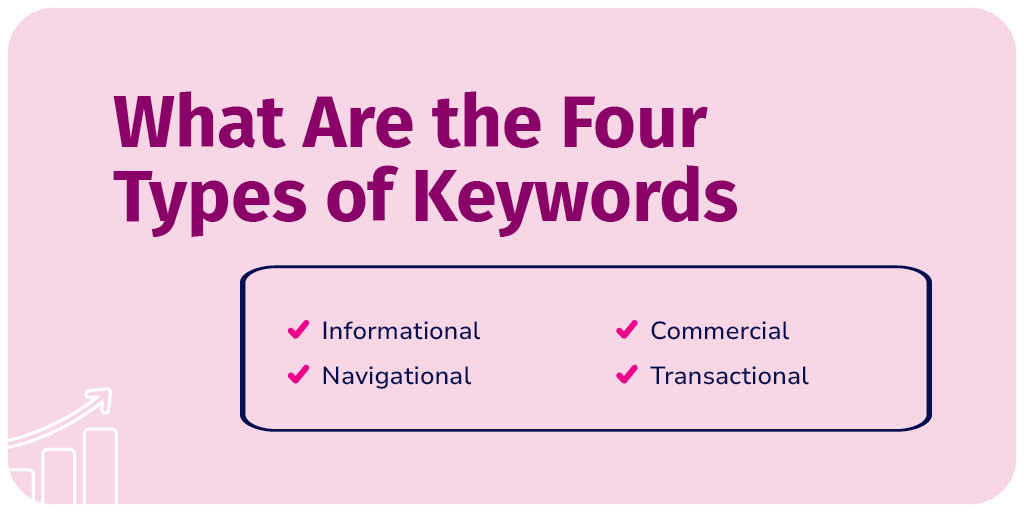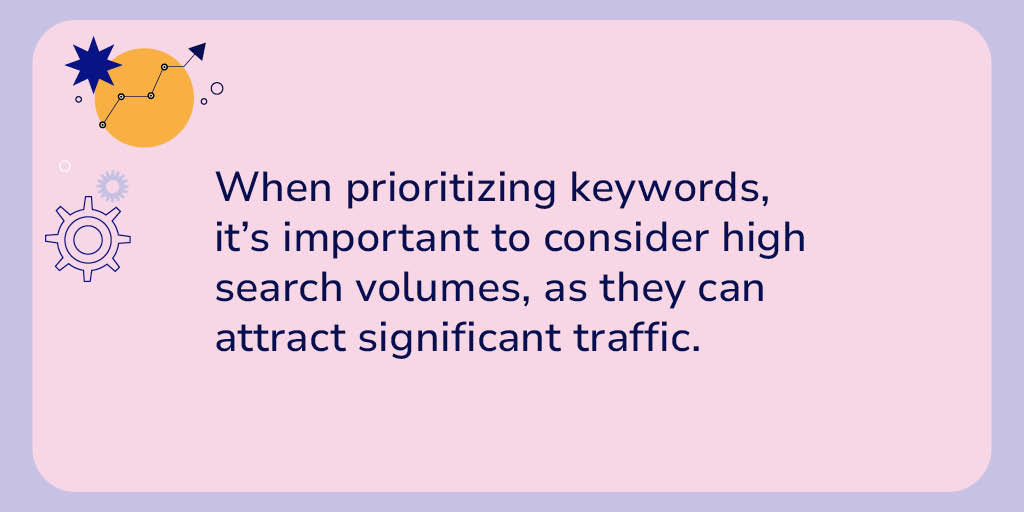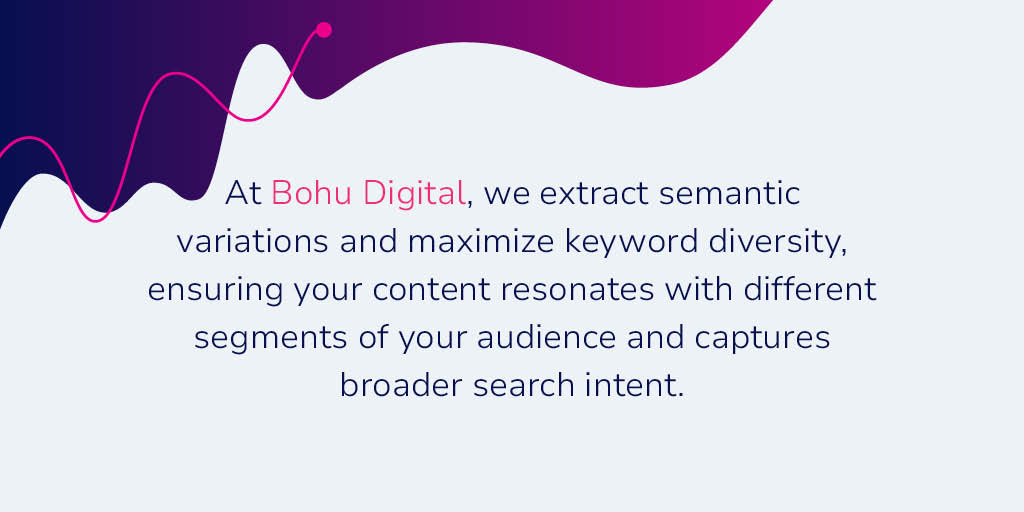What Is Keyword Research in Digital Marketing?
Keyword research is the strategic process of identifying and analyzing search terms that users enter into search engines. In digital marketing, this is a foundational practice because it shapes the content, structure, and strategy of SEO campaigns.
What is SEO? The abbreviation stands for Search Engine Optimization, a vital methodology for improving your website’s position in search engine results pages (SERPs). Without keyword research, you can’t achieve effective SEO, because you’d lack a roadmap for optimizing your site’s content to attract organic traffic. By understanding which keywords your ideal customers use, you can tailor your website’s content to match search intent and increase your visibility online. Many businesses turn to professional SEO Optimization Services to streamline this process, ensuring their strategy is aligned with best practices. This translates directly into more relevant website traffic, higher engagement, and ultimately, increased revenue.
A Guide to Keyword Research for SEO: Why Are Keywords Important for Digital Marketing?
Choosing the right keywords is crucial because they serve as the building blocks for your SEO strategy. High-impact keyword research ensures your website appears when potential customers search for products or services you offer. By targeting these terms, you can outrank competitors and become the go-to solution in your niche. Keyword research enables you to pinpoint the language your audience uses and the solutions they’re seeking. Rather than guessing what potential customers might search, a structured keyword research process provides data-driven insights into popular and relevant search terms within your industry. These insights guide not only SEO efforts, but also content creation, paid advertising, and social media strategies.
Proper keyword research is essential for effective search engine optimization, as it helps you identify relevant keywords that match your audience’s search intent. This is why keyword research is important: it ensures your content targets the right terms, improves your search visibility, and resonates with your target audience.
How Does Keyword Research Impact Website Visibility?
Keyword research directly influences your website’s ability to be found on search engines like Google. Well-researched keywords help search engines understand the content of your pages and match them to user queries. The more accurately your content aligns with the phrases your target audience is searching for, the higher your chances of ranking prominently, driving organic traffic, and improving lead generation.
Ranking for the right keywords increases your search traffic from organic search results, as your site appears more often in relevant search results. By analyzing search queries and understanding the features that appear in search results, you can further improve your visibility and attract more visitors.
Role of Keyword Research in Bohu Digital’s SEO Strategies
At Bohu Digital, keyword research is at the core of every successful SEO campaign. Our process combines cutting-edge tools with deep market understanding to uncover what your customers are searching for and why. We use keyword tools and analyze keyword data to generate actionable keyword insights, which inform the development of a comprehensive content strategy aligned with your business goals. By focusing on thoroughly researched keywords, Bohu Digital ensures your business maintains high visibility and sustained growth in competitive online environments.

How Do You Research Keywords for SEO?
Keyword research for SEO is a systematic process that helps businesses discover the exact words and phrases their potential customers are searching for online. At Bohu Digital, our expert approach combines industry-leading tools and innovative techniques to ensure your business stands out, attracts qualified traffic, and converts leads into loyal customers. We help clients conduct keyword research by finding keywords that are not only high in search volume but also relevant to their business goals, using advanced methods to find keywords through tools like Google Search Console and Google Keyword Planner, and focusing on finding keywords that align with user intent and drive meaningful business impact.
Identify Your Niche and Target Audience
Every successful keyword research strategy starts with a deep understanding of your business niche and the audience you want to reach. Define who your core customers are, what problems they want to solve, and how they search for solutions online. By identifying pain points and motivations, you can tailor your SEO and keyword targets to attract the most relevant visitors. Bohu Digital works with business owners and marketing professionals to create detailed audience personas, ensuring your keywords reflect real-world needs and industry trends. This process also helps identify keywords that align with each stage of the buyer’s journey, supporting content creation that matches search intent throughout the decision-making process.
Brainstorm Seed Keywords
Once you know your audience, the next step is to generate a list of seed keywords. These are fundamental terms directly related to your products, services, or sector. Think about every keyword your customers might use, consider synonyms, and leverage internal brainstorming sessions. Involving your sales and customer support teams can reveal hidden keyword opportunities. Seed keywords set the foundation for expanding your research and using advanced SEO tools to find related phrases and questions.
By creating comprehensive keyword lists and generating keyword ideas based on your seed keywords, you can systematically expand your research and ensure you target a balanced mix of head and long-tail keywords for better SEO results.
Use Google Keyword Planner and Free Keyword Research Tools
Leverage powerful tools like Google Keyword Planner to discover keyword suggestions, search volumes, and competition levels. To access Google Keyword Planner, you will need to set up a Google Ads account, which is a quick and free step. Features within your Google Ads account can provide additional keyword insights, such as pay-per-click values and search competition, making it a valuable free tool for both paid and organic SEO research. Bohu Digital recommends supplementing this with other free keyword research tools such as Ubersuggest, AnswerThePublic, and Google Trends. These free tools offer insights into trending queries and help you tap into emerging topics in your industry. By combining Google keyword research with multiple tools, you can develop a robust and comprehensive keyword strategy tailored to your objectives.
Analyze Search Intent and Keyword Competition
Effective SEO goes beyond simple keyword discovery. Analyze what users intend to achieve by searching specific terms. Are they looking to buy, learn, compare, or something else? Bohu Digital emphasizes the importance of understanding search intent (informational, navigational, transactional, or commercial investigation) to select keywords that match your website’s goals. For each page, selecting a target keyword and a focus keyword is crucial, as it ensures your content is optimized for the main term users are searching for. Understanding commercial intent, and identifying commercial keywords and transactional keywords, helps you align your content with users who are ready to take action or make a purchase. Equally important is evaluating keyword competition. Identify which terms are achievable based on your current site authority and which require more effort to rank for. This approach helps prioritize keywords with the best balance of achievable traffic and competition.
Review and Refine Your Keyword List
After compiling your initial list, it’s crucial to refine your keywords by removing irrelevant options, identifying duplicates, and prioritizing based on the data obtained from Keyword Planner and other tools. Review search volumes, competition scores, and relevance to your site’s content. Bohu Digital assists businesses by using proprietary frameworks and hands-on expertise to continually refine and update target keywords, ensuring your SEO strategy evolves with changing online behaviors and industry shifts.
To maximize your SEO performance, it’s important to consider all the keywords your site ranks for, continually seek more keyword ideas using various tools and techniques, and add new keyword opportunities to your strategy as they emerge.
What Are the Types of Keywords for SEO?
Understanding the various types of keywords is essential for creating a winning SEO strategy. Each keyword type serves a unique purpose, targeting different phases of the user journey and intent. By strategically leveraging the full spectrum of SEO keyword types, businesses can enhance visibility, attract high-converting traffic, and ensure content resonates with both search engines and human readers. Bohu Digital excels in identifying and utilizing these keyword classifications, enabling clients to achieve measurable improvements in digital performance. Targeting competitive keywords and grouping similar keywords is crucial for improving SEO results, as it helps address keyword difficulty, optimize content clusters, and maximize ranking opportunities. Keyword types can be classified in several ways, including by intent, length, or other characteristics.

What Are the Four Types of Keywords for SEO Intent?
1. Informational
Informational keywords are used to learn about a topic. For example, a searcher might query European Christmas traditions or How do you make pour-over coffee?
2. Navigational
Navigational keywords are used to find a particular website, web page, or location. Examples are Airbnb login and Venice Beach on a map.
3. Commercial
Commercial keywords are used to find out about a specific brand, service, or product. Examples could include the best dentists in the United States and reviews of Breyers ice cream.
4. Transactional
Transactional keywords are used when searchers want to make a purchase. These include mattresses on sale and Netflix subscription options.
What Are the Types of Keywords for SEO Length?
1. Short-Tail Keywords: Definitions and Examples
Short-tail keywords are broad and typically contain one or two words, such as marketing or SEO tools. They generate high search volume but come with heavy competition. Because they cover general topics, these keywords may not always capture the specific intent behind a user’s search. However, when used correctly within an overarching SEO strategy, short-tail keywords can drive significant traffic to your website.
2. Long-Tail Keywords: Definitions and Examples
Long-tail keywords are longer, more specific phrases. A couple of examples are the best free SEO tools for beginners and content writing agencies for small businesses. They have lower search volume but much lower competition, making them invaluable for niche targeting. These keywords align closely with searcher intent, often leading to higher conversion rates.
Using search volume data helps identify which long-tail keywords are most popular and worth targeting, allowing you to focus on those with the best potential for traffic and conversions.
3. Medium-Tail Keywords: Definitions and Examples
Medium-tail keywords strike a balance between short-tail keywords and long-tail keywords, offering some of the advantages of both. They usually consist of two or three words, benefitting from brevity while adding a little more specificity than short-tail keywords. For example, the medium-tail keyword designer rhinestone purses is a keyword that would have less competition than the short-tail keyword purses and more competition than the long-tail keyword Valentino Garavani rhinestone clutches at Saks Fifth Avenue. When targeting medium-tail keywords, it’s helpful to evaluate the keyword manually by reviewing search results and analyzing competitor pages to better understand the level of competition.
What Are Branded vs. Non-Branded Keywords?
The distinction between branded keywords (e.g., Bohu Digital SEO services) and non-branded keywords (e.g., digital marketing agency) is pivotal in keyword classification. Branded keywords target users already familiar with your company, supporting reputation management and direct conversions. Non-branded keywords cast a wider net, attracting new prospects at every stage of the buying journey. Analyzing what people search for—using tools like Google Search Console to review actual search queries—can help you balance branded and non-branded keyword targeting, ensuring your content aligns with real user interests and search behavior.
What Are LSI Keywords?
LSI keywords (Latent Semantic Indexing) are thematically related terms that help search engines understand context and content relevance. Examples include synonyms, related phrases, or conceptually linked words—like content optimization in an article about SEO. Incorporating LSI keywords naturally within website content signals authority and relevance, giving your site an edge in search engine algorithms. When creating content, it is essential to naturally include LSI keywords to improve topical authority and better address user search intent. Bohu Digital utilizes advanced tools and proven techniques to seamlessly integrate LSI keywords, maximizing both reach and topical authority.
Practical Examples From Bohu Digital
For clients at Bohu Digital, a comprehensive keyword classification approach is standard. For instance, an SEO campaign for a consulting firm might leverage the short-tail keyword consulting, the long-tail keyword consulting firm for SaaS startups in London, LSI keywords such as business strategy advice, and branded keywords like Bohu Digital consulting expertise. This layered methodology allows businesses to capture broad interest, dominate niche topics, and reinforce brand recognition within their markets. Working with Bohu Digital means harnessing expert insight to deploy all four keyword types thoughtfully, leading to tangible results and sustainable growth.
Additionally, creating dedicated product pages for specific keywords is essential for targeting transactional search queries. Optimizing each product page helps improve rankings for product-related searches and increases conversions by aligning content with user intent.
What Are the 5 Steps To Follow During Keyword Research?
Successful keyword research requires a clear and structured approach, which is why breaking the process into five distinct steps can dramatically increase your SEO effectiveness. Each phase is integral to ensuring your website targets the right audience, ranks for valuable search terms, and outperforms competitors. By following these five steps, business owners and marketing professionals will be able to establish a comprehensive keyword strategy that supports long-term digital growth—and Bohu Digital’s proven methodology can guide you every step of the way. At each stage, thoroughly researching keywords is essential to understand search intent, identify relevant topics, and evaluate keyword competitiveness for effective SEO results.
Step 1: Define Your Goals and Audience
Every effective Bohu Digital keyword process begins by clearly identifying your business objectives and your target market. Are you aiming for more sales, generating leads, or driving traffic to informational content? Knowing your goals allows you to select keywords that align with your desired outcomes. At the same time, gathering insights about your audience’s demographics, behaviors, and pain points ensures your research is tailored to real user needs, yielding better traction and higher conversion rates.
Step 2: Create a Seed Keyword List
Once your goals and audience are clear, generate a foundational list of seed keywords—these are basic terms closely related to your products, services, or core topics. Use brainstorming sessions with your team, review your website content, and analyze competitors for inspiration. This stage sets the groundwork for expanding into broader and more specific terms as you progress through keyword research.
Step 3: Use Keyword Research Tools
Expand and refine your list using professional tools such as Google Keyword Planner and various free keyword research tool options. These platforms reveal valuable metrics like search volume, keyword suggestions, and seasonal trends. Bohu Digital recommends leveraging multiple sources to discover hidden opportunities and stay ahead of your competitors, ensuring a diverse and data-driven keyword pool.
Additionally, make use of Google Search, Google Search Console, and other search console features to uncover keyword opportunities, analyze search queries, and assess keyword performance for more effective SEO strategies.
Step 4: Analyze Keyword Metrics
With a robust keyword list in hand, it’s time to evaluate each option using key metrics like search volume, keyword difficulty (competition), and relevance to your business. High search volume terms may promise more exposure, but balancing this against competition and user intent is crucial for practical results. This analysis phase helps you narrow the focus to keywords most likely to deliver real business outcomes.
When prioritizing keywords, it’s important to consider high search volumes, as they can attract significant traffic. However, high search volume alone does not guarantee success—balancing these opportunities with competition and intent, and sometimes targeting niche or long-tail keywords, can lead to better conversions.

Step 5: Group, Prioritize, and Implement Your Keywords
Finally, organize your refined keywords into logical groups, or clusters, based on user intent or website sections. Prioritize these based on your business goals and available resources, then craft your content and optimization strategy around these terms. To maximize SEO impact, create content around your prioritized keyword clusters, ensuring each piece is tailored to search intent and supports your overall strategy. Regularly measure performance and adjust your approach, as keyword research is an ongoing process—one in which Bohu Digital specializes in providing continued support and strategic oversight.
What Is the Tripod Rule of Keyword Research?
The tripod rule of keyword research is a strategic framework that helps marketers select the most effective keywords by evaluating three essential criteria: search volume, competition, and relevance. A keyword must strike a balanced intersection among these factors to maximize SEO results and drive qualified traffic. For business owners and marketing professionals, adhering to the tripod rule ensures that your efforts are directed towards terms that have the potential to bring real business value—meaning people are searching for them, your business can compete for them, and they are highly relevant to your audience and objectives.
Explanation of the Tripod Rule (Search Volume, Competition, Relevance)
The three legs of the tripod rule are:
Search Volume
Refers to the number of times a keyword is searched per month. High volume signals greater exposure, but it’s essential that the traffic aligns with your business goals.
Competition
Indicates how many other websites are targeting the same keyword. Low or moderate competition increases your chances of ranking, making it more feasible, especially for new or smaller domains.
Relevance
Measures how closely a keyword matches your offerings, target audience, and the user’s intent. Even a high-volume, low-competition keyword has little value if it’s not pertinent to your products or services.
The tripod rule is crucial for eliminating guesswork and focusing your SEO efforts on keywords that offer the best blend of reach and ROI.
How the Tripod Rule Guides Effective Keyword Selection
Applying the tripod rule introduces objectivity into keyword selection—a necessity when resources are limited and stakes are high. Bohu Digital employs this rule to help clients avoid two common pitfalls: targeting high-volume keywords that are too competitive, or focusing only on low-competition terms that lack meaningful search volume. By carefully balancing the three legs, your SEO strategy pivots towards keywords that are realistic to rank for, drive interested visitors, and support your revenue goals. This approach leads to sustainable organic growth and measurable results.
Applying the Tripod Rule to Real Bohu Digital Campaigns
Bohu Digital integrates the tripod rule into every client campaign. For example, when partnering with a regional retailer, our team first mapped out a list of high-volume keywords relevant to their products. We then filtered these terms by analyzing competition metrics using tools such as Google Keyword Planner and specialized SEO platforms. Finally, we ensured the selected keywords matched the retailer’s buyer intent and location targeting, resulting in higher site traffic that actually converted to sales.
This practiced strategy showcases how the tripod rule is not just a theory but a working pillar of SEO principles that drives tangible growth. Whether your business is just starting to build its SEO presence or looking to outperform established competitors, leveraging the tripod rule through Bohu Digital equips you with a smarter, more effective keyword research process.
Keyword Research for SEO Examples: A Practical Approach
Applying keyword research for SEO in a real-world context is the bridge between theory and measurable business results. Competitor keyword research is especially valuable, as it helps uncover effective keywords your rivals are targeting and provides insights to outperform them. Through hands-on steps and clear examples, Bohu Digital demonstrates how businesses can move beyond guesswork and use proven strategies to uncover the most effective keywords. This practical approach ensures both immediate visibility improvements and a strong, data-backed foundation for long-term digital growth.
Step-By-Step Walkthrough Using Google Keyword Planner
One of the essential tools for effective keyword research is Google Keyword Planner, renowned for its robust data and usability. The process begins by entering core topics or seed keywords related to your business. For example, a boutique fitness studio may start with personal training or group fitness. Google Keyword Planner then generates a range of related keywords, complete with search volumes and competition levels. Bohu Digital experts analyze this information to spot opportunities—identifying highly searched terms with manageable competition and strong relevance to your services. Understanding the monthly search volume helps prioritize which keywords to target by showing how often each keyword is searched, allowing you to focus on those with the greatest potential for traffic.
Using a Free Keyword Research Tool for Broader Research
While the Google Keyword Planner is indispensable, augmenting your research with a free keyword research tool can open new angles. Tools such as Ubersuggest, Answer the Public, or Google Trends help surface frequently asked questions, content gaps, and trending topics within your field. These tools also allow you to discover new keywords, expanding your SEO reach by identifying relevant terms you may have missed. At Bohu Digital, we extract semantic variations and maximize keyword diversity, ensuring your content resonates with different segments of your audience and captures broader search intent.

Evaluating and Shortlisting Keywords for an SEO Project With Bohu Digital
Once a substantial keyword list is compiled, evaluation is crucial. Bohu Digital meticulously assesses each keyword by its search volume, competition, and relevance to your business goals. High-volume terms may seem attractive, but they are only valuable if attainable and relevant. Bohu Digital’s team applies proven frameworks—filtering out low-value phrases, grouping keywords by theme, and prioritizing those with the best ROI potential. This tailored shortlist becomes the foundation for content planning, SEO optimization, and performance tracking. Strategic keyword placement within your content is essential to maximize SEO effectiveness, ensuring that keywords are positioned where they have the greatest impact on search engine rankings and relevance. The result is an SEO strategy where every keyword is purposefully chosen, driving consistent and profitable traffic to your site.
Why a Practical, Collaborative Approach Delivers Results
Bohu Digital’s practical approach merges data-driven insights with a deep understanding of your industry’s nuances. We work hand-in-hand with your team—sharing keyword research findings, aligning them with your marketing objectives, and offering transparent rationale behind every recommendation. This approach not only sharpens your competitive edge but also fosters ongoing learning, so your business can adapt swiftly as search behavior evolves.
Next Steps With Bohu Digital
When it comes to achieving long-term visibility and scalable growth online, effective keyword research is more than a one-time effort—it’s the foundation of all data-driven SEO strategies. Whether you’re just starting with SEO or looking to enhance your current efforts, ongoing analysis, refining of keywords, and adaptability to industry changes are essential for maintaining high rankings and driving qualified traffic. Bohu Digital specializes in transforming scattered efforts into a cohesive approach, providing clarity, direction, and consistent performance improvements.
Mastering keyword research means understanding your audience, anticipating their queries, and continually adjusting your strategy to capture emerging opportunities. It also involves rigorous tracking and performance analysis to identify what’s working and where adjustments are needed. Bohu Digital doesn’t just set up an initial list of keywords and walk away; instead, our team continuously analyzes campaign data, identifies new growth points, and fine-tunes your strategy so your business captures every relevant opportunity and stays ahead of shifts in the digital landscape.
Why Is Ongoing Keyword Research Crucial?
Keyword trends, search volumes, and user intent are in constant flux. Businesses that fail to revisit and optimize their keyword strategies risk losing ground to savvier competitors. Bohu Digital employs AI-enhanced tools and a proven, systematic process to ensure that your SEO initiatives don’t stagnate but instead evolve as your market and competition do. Our approach results in sustained organic growth, higher quality leads, and better ROI for every digital marketing dollar you invest.
Ready To Build Your Growth Engine?
Don’t let guesswork or outdated strategies hold your business back. Bohu Digital brings expertise, transparency, and results-driven methodology to every engagement, empowering marketing professionals and business owners to achieve extraordinary outcomes. Let us help you bring order to the chaos and create a bespoke keyword strategy that transforms your online presence and reliably fuels your sales pipeline.
Experience the power of partnership with Bohu Digital. We do more than drive clicks. We build sustainable, high-intent traffic that delivers measurable growth for your business. Schedule a consultation today, and take the next confident step toward SEO success.






































































































